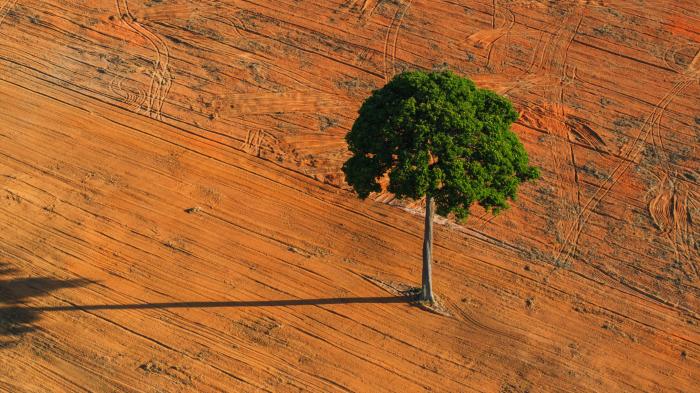Joanne gowa argues that ______________. select all that apply. – Joanne Gowa, a renowned advocate for indigenous rights and sustainable development, asserts that the well-being of indigenous communities and the planet hinges upon recognizing and upholding their sovereignty, valuing their knowledge systems, and amplifying their voices.
Her compelling arguments, rooted in extensive research and a deep understanding of indigenous perspectives, illuminate the profound impact of colonialism on indigenous cultures and the urgent need for decolonizing institutions and practices.
Impact of Colonialism on Indigenous Cultures

Joanne Gowa argues that colonialism has profoundly disrupted traditional practices and values of indigenous cultures. This disruption has manifested in various forms, including:
- Erosion of traditional knowledge systems, including language, spirituality, and healing practices
- Imposition of foreign values and education systems, leading to cultural assimilation
- Displacement from ancestral lands and loss of cultural connections to the environment
- Economic marginalization and loss of traditional livelihoods
Long-term Consequences of Cultural Disruption, Joanne gowa argues that ______________. select all that apply.
The long-term consequences of cultural disruption for indigenous communities include:
- Loss of cultural identity and sense of belonging
- Increased vulnerability to social and economic problems
- Intergenerational trauma and mental health issues
- Weakening of community cohesion and traditional governance systems
Importance of Indigenous Knowledge Systems

Joanne Gowa emphasizes the significance of indigenous knowledge systems for sustainable development. She argues that indigenous communities possess a wealth of knowledge and expertise that is vital for addressing environmental challenges:
- Indigenous knowledge systems provide insights into local ecosystems and biodiversity
- They offer sustainable practices for land management, water conservation, and climate adaptation
- Indigenous knowledge can contribute to the development of innovative solutions for environmental problems
Case Studies of Collaboration
Successful collaborations between indigenous communities and scientists have demonstrated the value of indigenous knowledge systems:
- In Australia, the Yolngu people have partnered with scientists to develop a fire management plan that incorporates traditional burning practices
- In Canada, the Inuit have worked with researchers to monitor and protect Arctic wildlife
- In New Zealand, the Maori have collaborated with scientists to restore native forests and improve water quality
Need for Indigenous Sovereignty and Self-Determination
Joanne Gowa advocates for indigenous sovereignty and self-determination as essential for the revitalization and well-being of indigenous cultures:
- Self-governance allows indigenous communities to make decisions about their own lands, resources, and cultural practices
- It empowers indigenous communities to address their unique needs and priorities
- Self-determination fosters cultural pride and strengthens community resilience
Benefits and Challenges of Self-Governance
Self-governance for indigenous communities offers benefits and challenges:
- Benefits:Increased autonomy, cultural preservation, improved health outcomes
- Challenges:Capacity building, funding, navigating complex legal and political systems
Representation of Indigenous Voices in Media and Academia

Joanne Gowa critiques the lack of indigenous representation in mainstream media and academia:
- Indigenous perspectives are often marginalized or distorted in media portrayals
- Indigenous scholars and researchers face barriers to entry and advancement in academia
- This lack of representation perpetuates stereotypes and undermines indigenous self-determination
Importance of Amplifying Indigenous Voices
Amplifying indigenous voices is crucial for:
- Challenging stereotypes and promoting cultural understanding
- Empowering indigenous communities to tell their own stories
- Fostering dialogue and collaboration between indigenous and non-indigenous peoples
Strategies for Decolonizing Institutions and Practices
| Area | Recommendations |
|---|---|
| Education |
|
| Media |
|
| Government |
|
| Non-profit Organizations |
|
Potential Challenges and Benefits
Implementing these strategies may involve challenges, such as:
- Resistance from non-indigenous stakeholders
- Lack of funding and resources
- Institutional inertia
However, the potential benefits include:
- Increased cultural understanding and respect
- Improved outcomes for indigenous communities
- A more just and equitable society
Quick FAQs: Joanne Gowa Argues That ______________. Select All That Apply.
What is the significance of indigenous knowledge systems?
Indigenous knowledge systems, rooted in generations of observation and experience, provide valuable insights into sustainable resource management, environmental conservation, and cultural practices.
How does colonialism impact indigenous cultures?
Colonialism has disrupted traditional practices, eroded cultural values, and marginalized indigenous voices, leading to long-term consequences for community well-being and cultural identity.
What is the role of indigenous sovereignty in sustainable development?
Indigenous sovereignty allows communities to govern themselves, manage their resources, and preserve their cultural practices, which are essential for sustainable development and environmental stewardship.